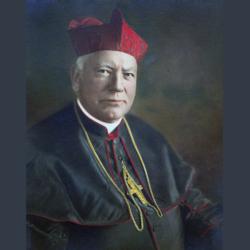Strong as death: Ashes and the hearts we bring to God
Every so often, the calendar puts ashes not only on our forehead, but also on our hearts. This year, as you might've noticed, Ash Wednesday is also Valentine's Day and, yes, the day of fasting and abstinence trumps the feast of the Roman saint whose name graces the day and has become synonymous with the idea of hearts and flowers and love proclaimed.
Being a saint and third-century martyr, I'm sure Valentine doesn't mind playing second fiddle to the start of Lent -- our great season of repentance, reparation and renewal. As for the rest of us, perhaps the anticipation of our annual "spiritual spring cleaning" can make us pull off the sacrifice of the day's chocolates -- there is always tomorrow -- with something like joy. A sweet reward for one day's really-not-very-taxing abstinence can be a potent reminder that -- as St. Teresa of Avila said, "all things pass." No pain lasts forever. All suffering, large or small, when endured with faith, will later reveal notes of sweetness upon looking back.
Because that's what love has a habit of doing -- imbuing even the hardest times with something beautiful. Love and suffering cannot exist exclusive of each other. What we love, we suffer over and for. And yet joy somehow fits itself between the two if we let it; if we are mindful enough to look for it.
Ash Wednesday gives us a "memento mori" moment when we are reminded that ashes, in the end, are the material destiny for each one of us. No matter how blessed we might feel, materially -- or how much we might struggle -- in the end we come to dust with only our spiritual selves going on into eternity. How we have lived and how we have loved are all we bring into tomorrow despite our circumstances. We each carry our weights -- great or small -- into that realm.
Don't just take it from me. St. Teresa of Avila's great daughter in faith, St. Therese of Lisieux, reminds us of this in her autobiography "Story of a Soul," when she writes about the weight and value of love. "[My sister] sent me to fetch Papa's big tumbler and put it beside my tiny thimble ... filling both with water, she asked me which seemed the fuller. I replied that one was as full as the other -- it was impossible to pour more water into each of them, for they could not hold it. In this way Pauline made it clear to me that in Heaven the least of the Blessed does not envy the happiness of the greatest."
Isn't it a consoling thought that God -- who understands us through and through and knows precisely what he has permitted to happen in our lives, and thus to shape us -- looks at our goblets and thimbles with the wisdom to identify the greatness of our love, despite our lowly containers, and that he sees our true volumes over our other qualities?
If we were to put the terms in the accouterments of Valentine's Day, God -- like a good parent -- values the small crayon and construction paper hearts just as fully as the big lacy ones laden with chocolate creams. God knows we bring what we can of love within the scope of our lives, our roles, our circumstances.
And that's a wonderful thing to remember as we ponder this collision of a commercial holiday with coming of Lent, for the season begun with ashes is one where we work on expanding the volume capacity of love in our lives and in our souls -- the vessels we carry to God.
The daily work of remembrance, of sacrifice, of giving alms and doing service is all about growing in love, and not just in love for the Lord, but for others and even for us, in the parts of ourselves we think are unlovable. St. ThérÈse is correct that the volume of our love is seen in all its completeness, in ways we cannot understand, by the father. And this is a great mystery, all in all.
But what better time to contemplate that mystery, and work within it, seeking to better understand how death is certainly inevitable, but love -- which we work to serve especially in Lent -- stands before the One who is All-Love, and sees it within the perfect relief of bright and merciful truth.
Scripture tells us "love is as strong as death" (Song 8:6). Yes. Because both are forever!
- Bishop Robert Reed is an auxiliary bishop of the Archdiocese of Boston, pastor of Sacred Heart/St. Patrick Church in Watertown and president of the CatholicTV network.



















